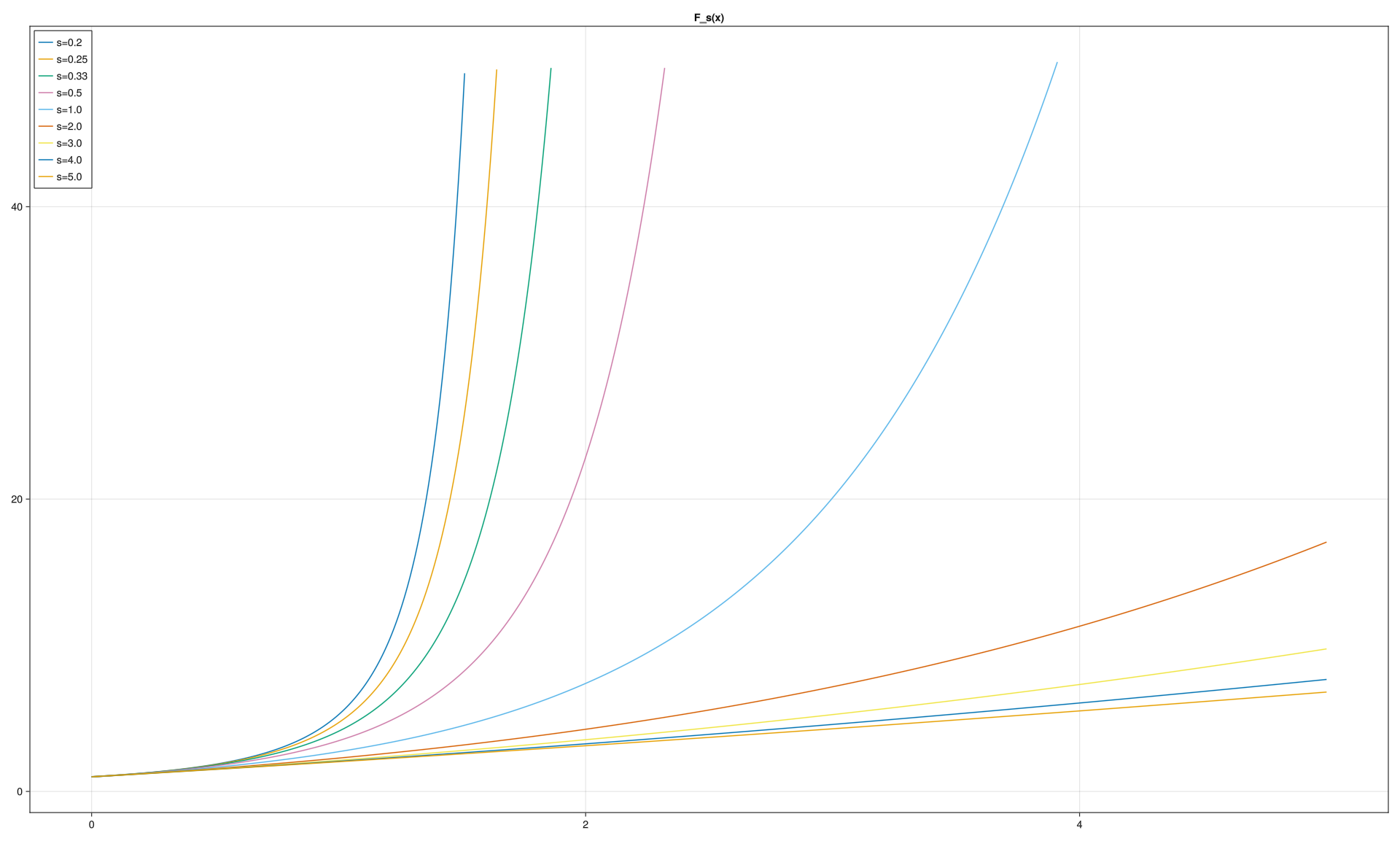While studying an application of Grönwall's inequality I found that the function $$ F_s(x)=\sum_{k=0}^{\infty}\frac{x^k}{\Gamma(k+1)^s} $$ for $s\geq0$ in some cases provides a sharper bound. I had a quick look at the DLMF but couldn't find anything related.
It is clear that $F_1(x)=e^x$ and for $n\in\mathbb{N}$ it seems that $F_n(x) = {}_{0}F_{n-1}(;1,\ldots,1;x)$ is a generalized hypergeometric function. However, I'm more interested in the case $s\in[0,1]$.
Is this function (and its properties) already known?

